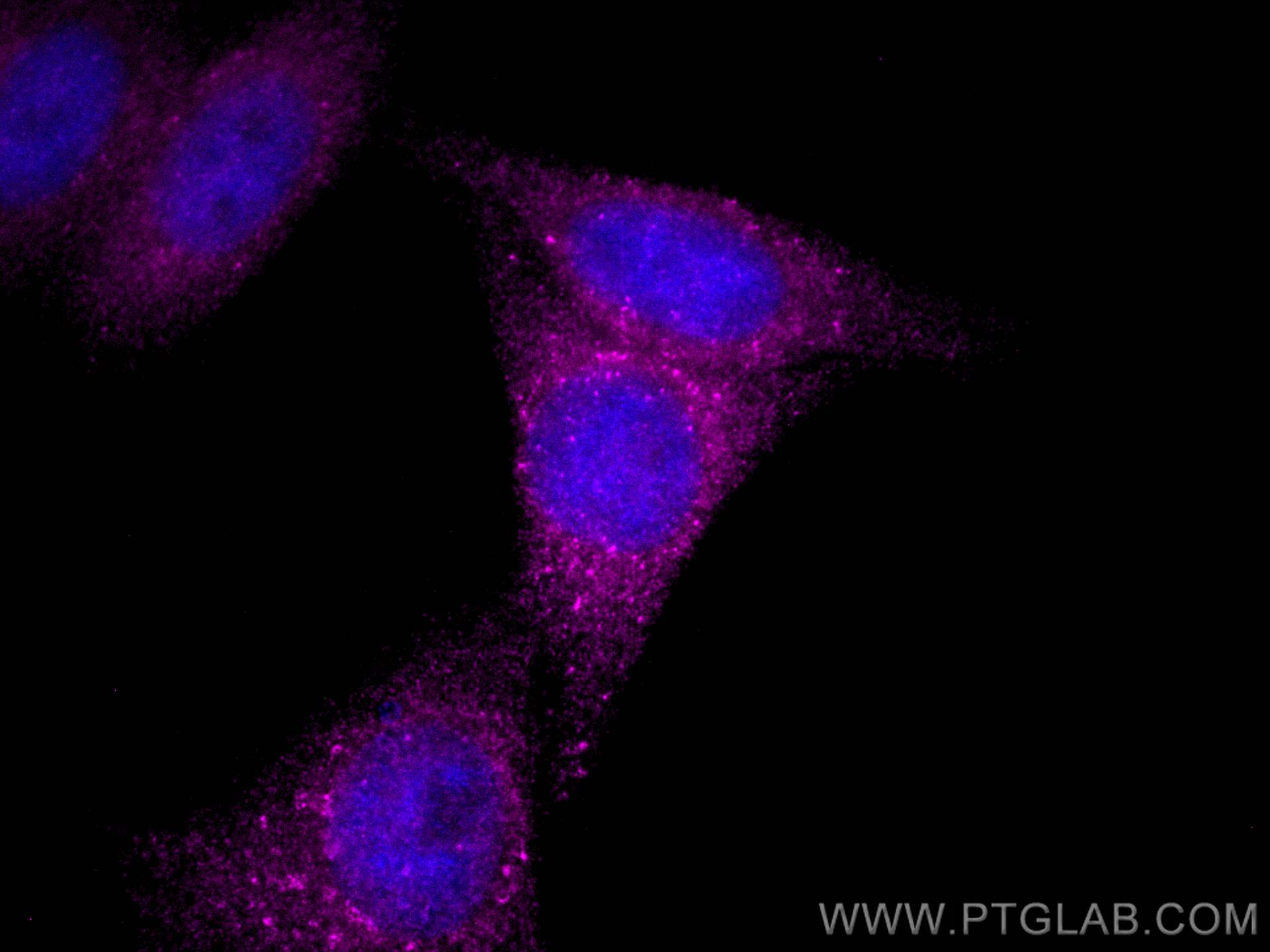- Featured Product
- KD/KO Validated
CoraLite®647-conjugated PTPN23 Polyclonal antibody
PTPN23 Polyclonal Antibody for IF
Host / Isotype
Rabbit / IgG
Reactivity
human
Applications
IF
Conjugate
CoraLite®647 Fluorescent Dye
Cat no : CL647-10472
Synonyms
Validation Data Gallery
Tested Applications
| Positive IF detected in | HepG2 cells |
Recommended dilution
| Application | Dilution |
|---|---|
| Immunofluorescence (IF) | IF : 1:50-1:500 |
| It is recommended that this reagent should be titrated in each testing system to obtain optimal results. | |
| Sample-dependent, Check data in validation data gallery. | |
Product Information
CL647-10472 targets PTPN23 in IF applications and shows reactivity with human samples.
| Tested Reactivity | human |
| Host / Isotype | Rabbit / IgG |
| Class | Polyclonal |
| Type | Antibody |
| Immunogen | PTPN23 fusion protein Ag0765 |
| Full Name | protein tyrosine phosphatase, non-receptor type 23 |
| Calculated Molecular Weight | 179 kDa |
| Observed Molecular Weight | 179 kDa |
| GenBank Accession Number | BC004881 |
| Gene Symbol | PTPN23 |
| Gene ID (NCBI) | 25930 |
| Conjugate | CoraLite®647 Fluorescent Dye |
| Excitation/Emission Maxima Wavelengths | 654 nm / 674 nm |
| Form | Liquid |
| Purification Method | Antigen affinity purification |
| Storage Buffer | PBS with 50% Glycerol, 0.05% Proclin300, 0.5% BSA, pH 7.3. |
| Storage Conditions | Store at -20°C. Avoid exposure to light. Stable for one year after shipment. Aliquoting is unnecessary for -20oC storage. 20ul sizes contain 0.1% BSA. |
Background Information
PTPN23(Tyrosine-protein phosphatase non-receptor type 23) is also named as HD-PTP,PTP-TD14 and KIAA1471.It encodes a 185-kDa protein which is expressed in human endothelial fromthe umbilical cord and in human Kaposi-spindle cells(PMID:16408268).PTPN23 is a non-transmembrane protein tyrosine phosphatase which contributes to the signal transduction pathways involved in the regulation of cell migration and invasion(PMID:22510412).
Protocols
| Product Specific Protocols | |
|---|---|
| IF protocol for CL647 PTPN23 antibody CL647-10472 | Download protocol |
| Standard Protocols | |
|---|---|
| Click here to view our Standard Protocols |


